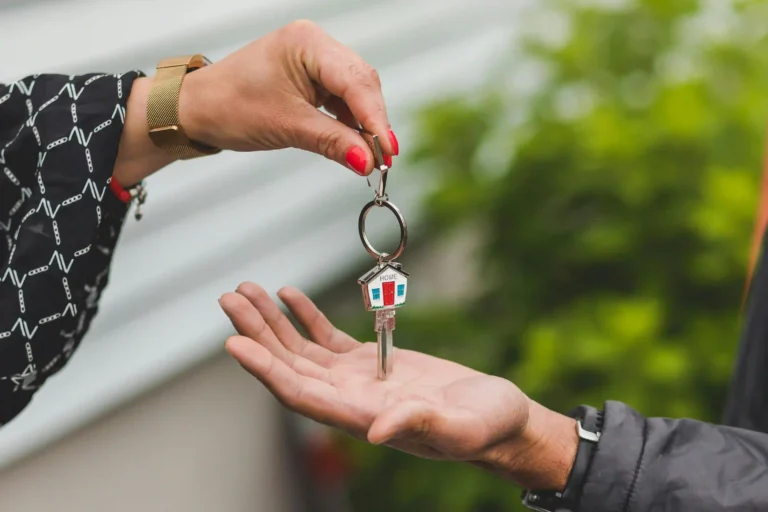
Opening an EU bank account is the essential first step to getting a loan in the EU. Banks like N26 in Germany, BBVA in Spain, or BNP Paribas in France assess your account activity. As a U.S. expat, ensure you have your passport, proof of address, and W‑8BEN on file. A local IBAN and regular deposits build trust and can lead to personal loans, mortgages, or auto financing — even without prior EU credit history.
📌 This article is part of the relocation guide to Spain: Financial Literacy in the EU: A Guide for Expats in 2025
Table of Contents
- Introduction
- Step 1: Open a Bank Account
- Step 2: Gather Documentation
- Step 3: Choose the Loan Type
- Common Mistakes
- What to Do If Rejected
- How to Boost Your Chances
- Conclusion
- FAQ

1. How to Get a Loan in the EU: Introduction for Expats and U.S. Citizens Abroad
Facing the EU Lending System: A Challenge for Expats in 2025
For U.S. citizens living in Europe or EU nationals returning from abroad, figuring out how to get a loan in the EU can feel like navigating a maze. Even with stable income and long-term residency, many find themselves rejected due to lack of local credit history, unfamiliar documents for loan in EU banks, or simply not knowing where to start.
Whether you’re looking to open an EU bank account, buy property, or finance a car, understanding the local financial system is crucial.
Loans for Expats: The Core Challenges
According to the European Banking Authority (EBA), over 37% of expats in the EU face difficulties obtaining personal loans, mainly due to:
- No or insufficient credit history in the EU
- Mismatched documentation standards
- Inconsistent banking rules across member states
Here’s a quick overview of the main differences U.S. expats and EU residents abroad might encounter:
| Challenge | U.S. Expats in the EU | EU Citizens Returning from Abroad |
|---|---|---|
| Credit history recognized? | ❌ U.S. score not valid in EU | ❌ Non-EU credit often not transferred |
| Required local address | ✅ Required for most lenders | ✅ Required |
| Valid documents for loan in EU | Passport, visa, proof of income, residence certificate | National ID, proof of residence, EU tax number |
| Time to build local credit score | 6–12 months via secured cards or EU-based utility contracts | 3–6 months with employment and EU accounts |
| Access to government-backed EU loans | ❌ Rare, unless residency is long-term | ✅ More likely eligible in home country |
Why Building Credit History in the EU Matters
Without a local credit trail, many banks automatically reject applications, regardless of the borrower’s income. That’s why it’s critical to build credit history in the EU from day one. This includes:
- Opening an EU-based current account
- Using secured or prepaid EU credit cards
- Registering regular bill payments (rent, utilities) in your name
Trending in 2025: Neo-Banks and Cross-Border Lending
The good news? Thanks to fintech innovation, more lenders are adapting to the expat economy. Neo-banks like N26, Revolut, and Wise now provide credit-building tools and loans with simplified onboarding—even for new EU residents.
In 2025, EU loans for expats are more accessible if you work with:
- Digital banks with international verification
- Peer-to-peer lending platforms with lower documentation thresholds
- EU countries with expat-friendly financial laws (e.g., Germany, Portugal, Netherlands)
2. Step 1: Open an EU Bank Account — Your First Move to Get a Loan in the EU
Why Opening an EU Bank Account Is Crucial in 2025
Before you can think about how to get a loan in the EU, you need to open an EU bank account. This is more than just a formality — it’s a legal and financial foundation for building local credibility, managing income, and eventually qualifying for EU loans for expats.
Without a local bank account, you can’t build credit history in the EU, and most lenders won’t even consider your application.
What You Need to Open an EU Bank Account
Each country in the EU has slightly different rules, but generally, you’ll need:
| Required Document | Purpose | Accepted Forms |
|---|---|---|
| Proof of identity | Verify legal identity | Passport, national ID (EU citizens) |
| Proof of residence in the EU | Confirm address in EU country | Utility bill, rental contract, residence permit |
| Proof of income or employment (optional) | Some banks require it for account approval | Job contract, pay slip, freelance invoice |
| Tax Identification Number (TIN/NIF/NIF) | Required in some countries | From local tax authority or embassy |
💡 Tip: U.S. expats may also need to complete FATCA declarations for compliance with U.S. international banking laws.
Recommended Banks by Country (2025)
To simplify onboarding, choose banks that support digital applications and offer English-language interfaces. Here’s a breakdown by region:
| Country | Best Bank for Expats (2025) | Features |
|---|---|---|
| France | BNP Paribas | In-branch service, English support, mortgage access after 6 months |
| Germany | N26 (Neo-bank) | 100% online, instant IBAN, mobile app in English |
| Spain | BBVA Spain | Known for expat support and quick account opening |
| Pan-EU | Revolut, Wise | International IBAN, supports multiple currencies, easy setup from abroad |
| U.S. Expats | ING (Netherlands), Revolut | No local history required, good integration with U.S. accounts |
📈 Stat (2025): Over 58% of expats in Germany and France choose digital-first banks like N26 or Revolut due to faster verification and reduced paperwork.
Building Credit History Starts Here
Once your EU bank account is active, you can begin establishing your credit history in the EU by:
- Setting up direct deposit of your salary or pension
- Paying rent and utility bills from this account
- Using a secured credit card or overdraft feature (if available)
- Applying for small, short-term loans from your bank to build a record
Even if you’re not ready to apply for financing yet, this step puts you on the right path toward qualifying for loans for expats in your new country.
3. Step 2: Gather Documentation for Your EU Loan Application
What Documents Do You Need to Get a Loan in the EU in 2025?
Once you’ve opened an EU bank account, the next step in figuring out how to get a loan in the EU is preparing the required paperwork. Lenders will only assess your application if you submit a full, verified set of documents for loan in EU banks.
✅ Tip: Missing or outdated documents are the #1 reason applications from expats are rejected.
Core Documents Required for Most EU Loans
| Document Type | Purpose | Examples / Notes |
|---|---|---|
| Proof of Identity | Confirms legal identity | Passport (non-EU), National ID (EU citizens) |
| Proof of EU Residency | Verifies you live in the EU | Utility bill, rental contract, residence permit |
| Proof of Income | Shows financial stability | Payslips (last 3–6 months), work contract, pension statement |
| Credit History (if any) | Supports lending decision | EU credit report, bank account statements |
| Tax ID | Confirms registration with tax system | Germany: Steuer-ID, Spain: NIF, France: Numéro fiscal |
| Bank Details | Where funds will be deposited | IBAN, RIB (France), EU account statement |
Additional Documents for U.S. Expats
If you’re a U.S. citizen applying for EU loans, expect to submit:
| U.S.-Specific Requirement | Why It’s Needed |
|---|---|
| W-8BEN form | FATCA compliance with U.S. IRS laws |
| Copy of Passport | U.S. ID required even if residing abroad |
| Proof of U.S. income (if any) | For dual-taxation or credit evaluation |
📌 Note: Not all banks accept U.S.-based income for loan evaluation. It’s best to establish local income streams to build credit history in the EU.
Regional Nuances in Documentation
| Country | Extra Requirements (2025) |
|---|---|
| Germany | Steuer-ID, Anmeldung (city registration), SCHUFA credit report |
| France | RIB (bank ID), last 3 avis d’imposition (tax notices), EDF utility bill |
| Spain | NIE (Foreigner ID), NIF (Tax ID), proof of social security payments |
Don’t Forget Translation and Notarization (If Needed)
Documents not in the official language of the country may require certified translation or notarization. For example, Germany often demands German-language versions, while France may accept English docs with certified translation.
Final Checklist Before Applying
✅ All documents are up-to-date and match your application
✅ Names and addresses are consistent across forms
✅ Originals + copies (physical or digital) are ready
✅ Any non-EU documents are translated and legalized (if needed)
4. Step 3: Choose the Loan Type That Fits Your Needs
Finding the Right Loan Type in the EU (2025)
After opening your EU bank account and gathering all necessary documents for loan in EU, it’s time to decide which type of loan is right for you. Choosing correctly is crucial — different loans have vastly different terms, especially for EU loans for expats.
Knowing how to get a loan in the EU starts with understanding what types of financing are available to foreigners and non-residents.
Main Types of Loans Available to Expats in the EU
| Loan Type | Purpose | Best For | Typical Term |
|---|---|---|---|
| Personal Loan (EU) | Unsecured, used for general expenses | Rent deposit, relocation, medical bills | 1–7 years |
| Auto Loan | Financing a car purchase | Residents, workers with valid income | 3–5 years |
| Mortgage / Home Loan | Property purchase or refinancing | Residents or long-term visa holders | Up to 30 years |
| Secured Loan | Backed by savings or asset (e.g., Bauspar) | Expats with limited credit history | 5–15 years |
| Student/Education Loan | For university tuition or training | EU citizens or permanent residents | 1–10 years |
Regional Loan Options in 2025
To guide your decision, consider what’s commonly available in your country of residence or plan to move to:
| Country | Recommended Loan Type (2025) | Notes |
|---|---|---|
| Germany | Bausparvertrag (Home-Savings Loan) | Requires saving phase; ideal for EU mortgage or renovation funding |
| Spain | Non-resident mortgage | Available to U.S. expats and foreigners buying holiday/investment homes |
| France | Standard mortgage or personal loan via major banks | Requires RIB, tax documents, and proof of local income |
| U.S. Expats | Auto & consumer loans via ING, N26, or Revolut | Often no need for long-term credit history if income is documented |
💡 Tip for expats: Start with a small personal loan in the EU (e.g., €2,000–€5,000) to build your repayment record before applying for a larger mortgage or car loan.
EU Mortgage Requirements (2025 Snapshot)
| Factor | Typical Requirement (Expats) |
|---|---|
| Down payment | 20–30% (higher for non-residents) |
| Proof of income | 6–12 months of payslips or tax returns |
| Residency status | Preferred but not mandatory in some countries (e.g., Spain) |
| Credit history | Local EU credit or bank history improves chances |
Building Credit History Through Smart Loan Choices
Some loans, such as secured credit lines or small personal loans, are designed to build credit history in the EU. That makes them perfect entry points for U.S. expats or new EU arrivals with little financial footprint.
Look for:
- Banks that report to local credit agencies (e.g., SCHUFA in Germany)
- Installment loans with clear, transparent repayment schedules
- Digital lenders (like N26 or Younited Credit) that accept foreign income sources
5. Common Loan Mistakes Expats Make in the EU (And How to Avoid Them)
Why Loan Applications Get Rejected in the EU
Even after opening an EU bank account and collecting all documents for loan in EU, many expats are surprised to receive a rejection. Whether you’re applying for a personal loan EU, a mortgage, or an auto loan — small oversights can lead to major delays or denials.
Understanding these common mistakes will significantly increase your success rate when figuring out how to get a loan in the EU.
Top 7 Mistakes When Applying for a Loan as an Expat in 2025
| Mistake | Impact | How to Avoid It |
|---|---|---|
| ❌ No local credit history in the EU | Application rejected due to lack of trust | Use prepaid credit cards, utility bills, small personal loans |
| ❌ Missing documents for EU loan | Incomplete file delays or blocks processing | Always check the lender’s checklist before submitting |
| ❌ No RIB in France | Funds can’t be disbursed without it | Open a local French bank account and request your RIB |
| ❌ No SCHUFA report in Germany | Application auto-rejected by local lenders | Open a German bank account early and use basic credit tools |
| ❌ Inconsistent address or ID information | Triggers fraud flags and manual review | Match your ID, utility bill, and bank account information |
| ❌ U.S. expats missing W-8BEN or FATCA forms | Application paused due to legal risk | File all U.S. tax forms with your bank before applying |
| ❌ Applying for the wrong loan type | Higher rejection rate or poor terms | Match your residency status and income to the right product |
Regional Examples: What Expats Commonly Miss
| Country | Typical Expat Mistake | Fix |
|---|---|---|
| Germany | No SCHUFA history → leads to instant denial | Use mobile contracts, pay rent via bank, request mini loan |
| France | Missing RIB or recent Avis d’imposition | Get a French IBAN and file local taxes even if exempt |
| Spain | Submitting foreign income only with no NIE or NIF | Register for NIF + prove local economic ties |
| U.S. Expats | Forgetting FATCA forms or using only U.S. income | Submit W-8BEN + show EU-based or remote income documentation |
📌 Tip: EU lenders prefer documentation in their official language. Always check if certified translations are required before submitting.
Mistake #1: Ignoring the Credit History Barrier
Even if your U.S. or UK credit score is excellent, EU lenders generally won’t recognize it. That’s why building credit history in the EU must start as soon as you arrive — even before you need a loan.
Fastest ways to build EU credit in 2025:
- Open a current account in the EU
- Use a prepaid or secured credit card
- Pay utility bills and rent from your EU account
- Request a mobile phone contract (reports to local bureaus)
6. What to Do If Your EU Loan Application Is Rejected
Loan Rejection in the EU: What It Means and What to Do Next
Receiving a loan rejection in the EU can be frustrating — especially for expats who’ve already submitted all the required documents for loan in EU and opened an EU bank account. But a “no” isn’t always the end. With the right strategy, many applicants succeed on their second attempt.
Before reapplying, you need to know why the lender rejected your application and how to correct the issue.
🔗 Why you get rejected →
Step 1: Understand the Reason for Rejection
Under EU law, banks must give a reason for denial upon request — especially if automated credit scoring was involved.
Common Rejection Reasons (2025)
| Reason | What It Means | How to Fix It |
|---|---|---|
| No local credit history in the EU | Bank can’t assess your risk | Start building history with secured cards or utility accounts |
| Missing or mismatched documentation | Incomplete or conflicting application | Double-check ID, address, income consistency |
| Low income-to-loan ratio | You requested more than your earnings allow | Lower the requested loan amount or extend repayment period |
| No residency proof or valid NIE/TIN | Bank requires EU tax or ID registration | Register locally and update address across all documents |
📌 For U.S. expats: missing W-8BEN forms or lack of FATCA compliance may result in automatic rejections.
Step 2: Strengthen Your Application
Before applying again, take 1–3 months to improve your financial profile.
Ways to Build Credit History in the EU:
- Open and actively use a local current account
- Apply for a secured credit card or a small personal loan EU
- Pay rent and utility bills from your EU bank account
- Avoid frequent overdrafts or late payments
Some neobanks and digital lenders even offer “credit builder” products in 2025 (e.g., N26, bunq, Younited Credit).
Step 3: File a Complaint or Appeal the Decision
If you believe your loan was unfairly rejected, you have the right to appeal the decision or file a formal complaint.
Regional Complaint Options
| Region | Where to File Complaint | When to Use |
|---|---|---|
| Germany | BaFin (Federal Financial Supervisory Authority) | Discrimination, lack of response, or procedural issues |
| EU-wide | EBA (European Banking Authority) – FIN-NET Mediation | Cross-border disputes or multi-country banking issues |
| U.S. Expats | Local financial ombudsman or U.S. Consulate support | Language issues, residency misunderstanding, FATCA problems |
🔗 How to submit a complaint →
💡 Tip: Always try to resolve the issue directly with the lender first before escalating.
What Not to Do After a Loan Rejection
❌ Don’t reapply immediately with the same bank using the same data
❌ Don’t submit multiple loan applications at once — this may lower your credit score
❌ Don’t ignore the rejection reason — address it directly before reapplying
Summary: Turn a “No” into a Future “Yes”
Being rejected is common — especially when applying for EU loans for expats in a new country. But with a clear action plan, you can regroup, strengthen your profile, and reapply successfully.
Next Steps
- ✅ Fix documentation issues
- ✅ Start building credit history in the EU
- ✅ Choose the right lender for your situation
7. How to Boost Your Chances of Getting a Loan in the EU
Want Better Approval Odds? Build Your Credit History in the EU First
If you’re wondering how to get a loan in the EU, especially as an expat, know this: your creditworthiness is everything. Most EU loans for expats are approved only after the borrower demonstrates basic financial reliability — usually over 3–6 months.
The best way to improve your odds is to build credit history in the EU through simple, low-risk financial tools.
🔗 What is scoring?→
Step 1: Start with a Credit-Builder Card or Micro-Loan
If you don’t qualify for a traditional credit card, try credit-builder tools that report activity to local credit agencies.
| Provider | Type | Ideal For | Region |
|---|---|---|---|
| Revolut Credit | Credit-builder virtual card | Newcomers with EU bank account | EU-wide |
| Wise | Secured virtual card | Low-income or gig workers | EU/UK |
| N26 Credit | Personal credit line (Germany) | Expats with N26 account | Germany |
| bunq Easy Credit | Micro-loan with scoring track | Residents & freelancers | Netherlands/EU |
🔗 Credit cards without history →
Benefits of Micro-Loans for Expats
A micro-loan for expats (typically €500–€3,000) offers:
- Easier approval than standard personal loans
- Lower risk for banks = better odds for you
- Positive impact on your credit scoring if repaid on time
Step 2: Open and Actively Use an EU Bank Account
We’ve mentioned this before, but it’s worth repeating: a verified, active EU bank account is one of the most powerful tools to prove financial residency.
| ✅ Do This | ❌ Avoid This |
|---|---|
| Use your EU IBAN for salary payments | Keeping most of your money in a foreign account |
| Pay bills through auto-debit | Paying rent in cash |
| Monitor account activity monthly | Ignoring overdrafts or unpaid fees |
Step 3: Show Stability with Local Transactions
Many EU banks use internal behavioral scoring models. This means they care how you use your account, not just how much money you have.
Key Activities That Improve Your Score:
- Pay rent and utilities from your EU account
- Set up direct deposit for income
- Make consistent monthly payments (e.g., mobile plan, gym)
- Avoid overdrafts and bounced transactions
📌 By showing that you “live financially” in the country, you increase lender trust.
Step 4: Apply Strategically — Not Randomly
Avoid applying to multiple lenders at once. Instead:
- Choose banks with expat-friendly lending policies (e.g., N26, bunq, Revolut)
- Wait 30–60 days after building some local activity before applying
- Make sure all documents for loan in EU are recent and consistent
Summary: Build → Show → Apply
| Phase | What to Focus On | Time Needed |
|---|---|---|
| Build history | Use credit cards, pay bills, grow account use | 1–3 months |
| Show stability | Regular income, no missed payments | 3–6 months |
| Apply smartly | Targeted loan based on profile | 1 month prep |
Ready to move forward?
✅ Make sure your credit activity is visible to the bank
✅ Use Revolut Credit, Wise, or N26 Credit
✅ First — build your credit history, then — apply for credit
Conclusion: Getting a Loan in the EU as an Expat — What Really Matters
Navigating how to get a loan in the EU can be challenging, especially for expats facing new systems, unfamiliar paperwork, and no local financial history. But success is absolutely possible — if you approach it step by step.
To boost your approval odds for EU loans for expats, remember these key takeaways:
- ✅ Open an EU bank account early — it’s the foundation for all local financial activity
- ✅ Prepare and verify all documents for loan in EU — from proof of income to tax IDs
- ✅ Take time to build credit history in the EU using secured cards, utility bills, and micro-loans
- ✅ Choose the right loan product for your needs — personal, mortgage, auto, or credit-builder
- ✅ If rejected, don’t panic. Reassess, rebuild, and reapply with a stronger profile
With the right tools and knowledge, expats can access competitive financing across the EU — and build a strong financial future.
FAQ
How can I get a loan in the EU as an expat?
To get a loan in the EU, start by opening a local EU bank account and gathering all necessary documents for loan in EU, such as proof of income and residency. It’s important to build credit history in the EU by using local financial products before applying for bigger loans. Choosing the right lender that offers EU loans for expats will also improve your chances.
What documents do I need to apply for a loan in the EU?
Typical documents for loan in EU include a valid passport or ID, proof of income (like payslips or tax returns), proof of residence, tax identification number (TIN), and sometimes a credit report. Requirements vary by country, so check with your lender for specifics.
Why is it important to open an EU bank account before applying for a loan?
Opening an EU bank account establishes your financial presence locally, which is crucial for verifying your income, paying bills, and building a credit history. Banks are more likely to approve loans when you demonstrate stable local banking activity.
How do I build credit history in the EU as a newcomer?
You can build credit history in the EU by opening a local bank account, using credit-builder cards (such as those offered by Revolut or N26), paying your bills on time, and taking small loans or micro-loans. Consistent, responsible financial behavior helps lenders trust your creditworthiness.
Are there special loan options for expats in the EU?
Yes. Many lenders offer EU loans for expats tailored to those without an extensive local credit history. These may include personal loans with flexible criteria, micro-loans, or mortgages designed for non-residents. Research lenders experienced with expat clients for better terms.
📚 Also read:
Sources








